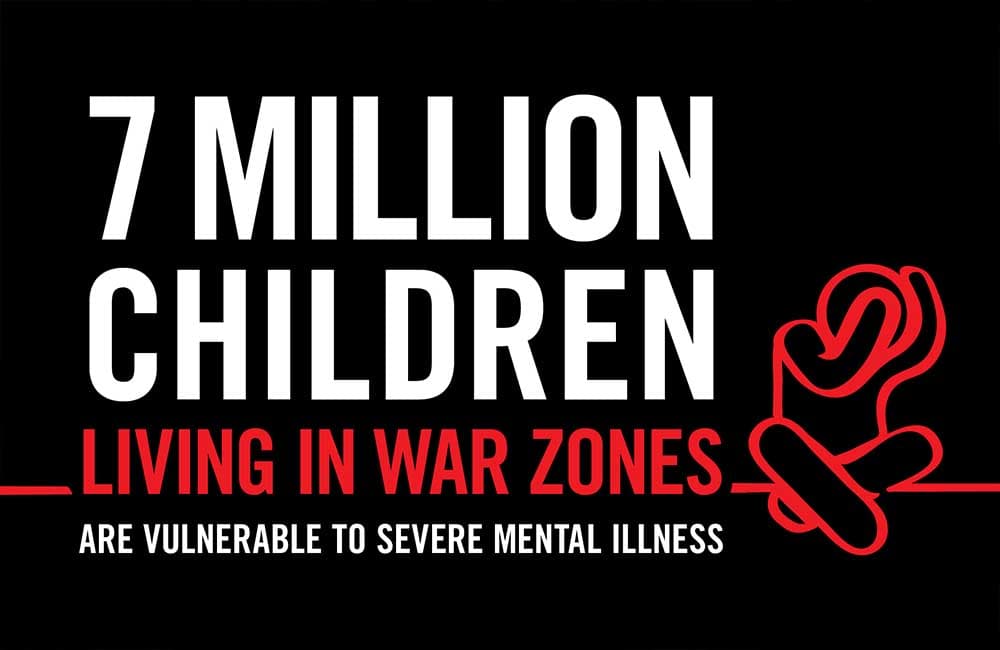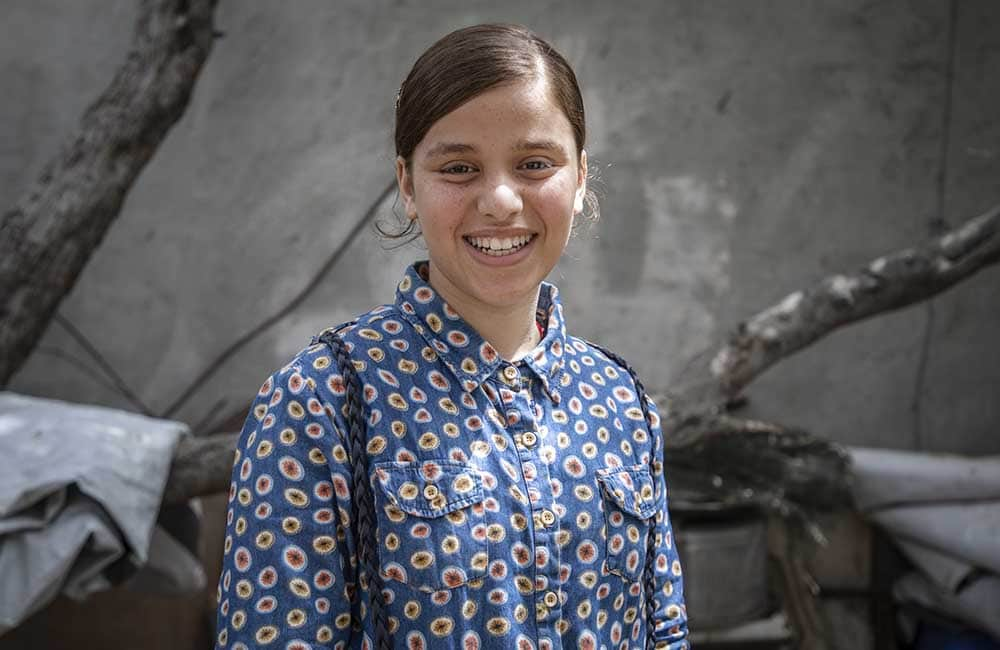24 million children are suffering from mental health impacts of conflict
The images of a war zone are easy to conjure up: bombs exploding, men with weapons at checkpoints, long lines for food and children out of school.
But what happens when the shooting stops, and children are left alone with their thoughts?
A new report from Save the Children, ‘Road to recovery: responding to children’s mental health in conflict’ reveals that of the 142 million children living in conflict zones, more than seven million are at serious risk of developing severe mental health disorders, such as schizophrenia, bipolar disorder, severe depression or anxiety, and severe post-traumatic stress disorder.
This is the hidden toll that conflict takes on children. It is part of why every war is a war on children.

Mariam’s* life changed forever one night
Mariam is from Gaza, in the occupied Palestinian territories. Her life changed the night a missile strike left shrapnel embedded in her left ear. She became severely traumatised and withdrawn, struggling even to communicate with her own brothers. Her grades dropped at school and, she says, her friends started “looking at me differently”. She couldn’t do the things she’d been able to do before – even going outside to play left her feeling dizzy. Fiercely independent, she hated having things done for her.

Mariam, 14, at her home in the Gaza Strip, occupied Palestinian territory (oPt)
Jonathan Hyams / Save the Children
Mariam’s story is just one example of how a traumatic experience can reverberate for years, leaving a once vibrant child grasping for help, unable to escape her thoughts. Fortunately, Mariam’s story of trauma and withdrawal changed when she was able to access Save the Children’s programs - programs that we couldn’t provide without the generous support of people like you.
Mariam was able to build friendships and began to open up about her experience to her case worker, Nebal. Mariam’s school work picked up again and now she’s looking forward to the future with optimism. She wants to become a doctor to help children who’ve suffered like she has.